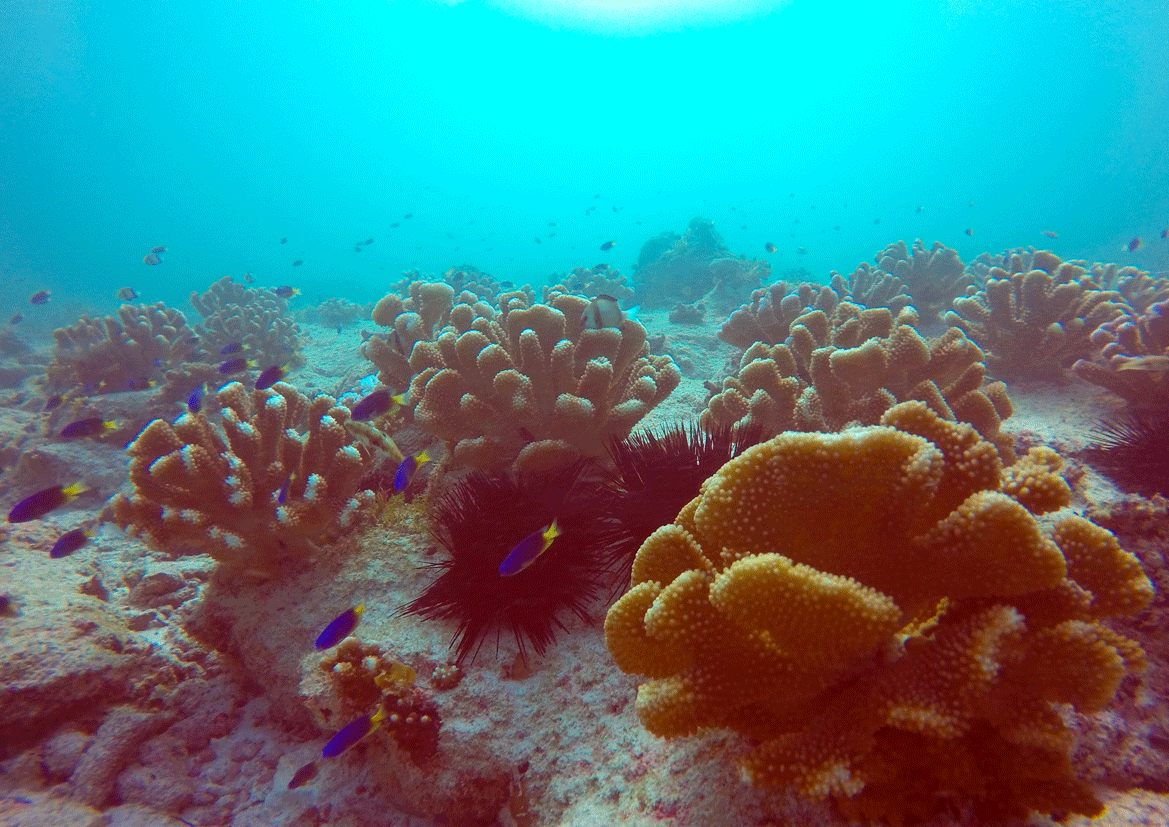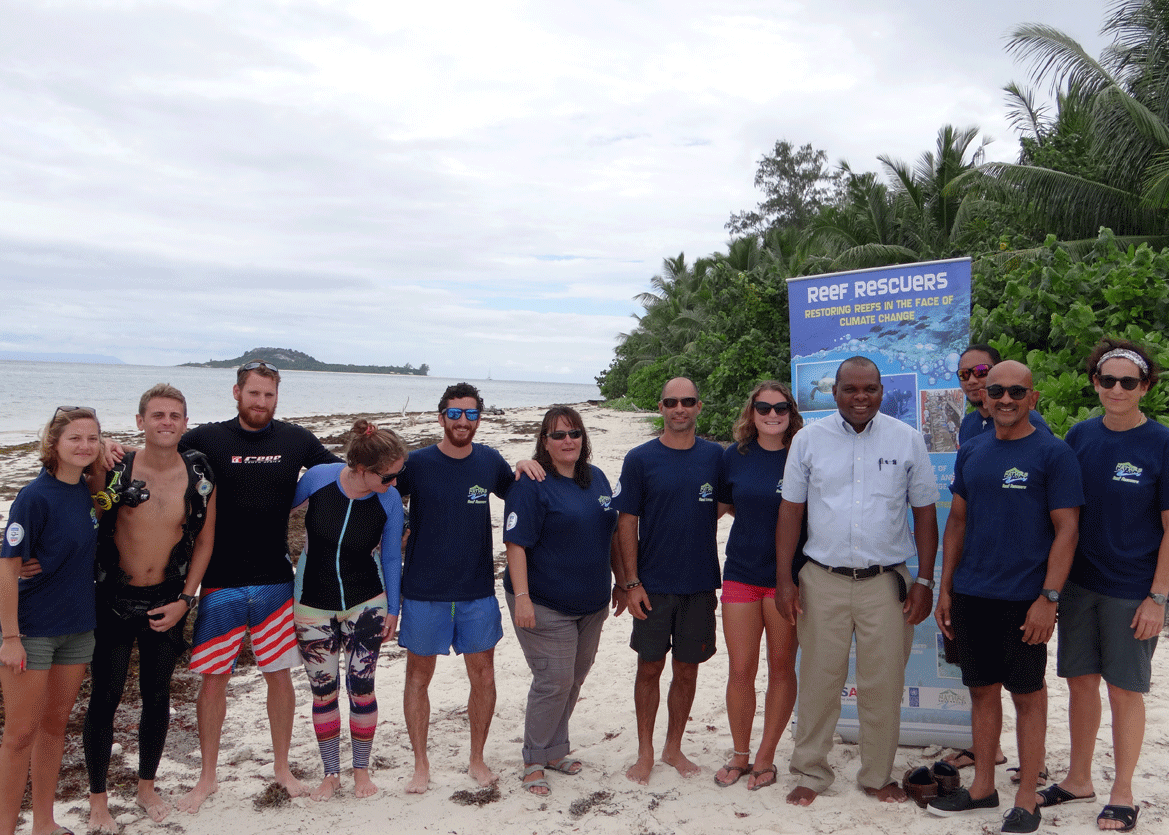Nature Seychelles' coral reef restoration project is aimed at restoring coral reefs that have been negatively impacted due to Climate Change, one of the main threats to marine ecosystems. Corals in the Seychelles and the region have been destroyed by ocean warming and coral bleaching events, threatening the livelihoods of millions of coastal peoples in Eastern Africa and the Western Indian Ocean islands.
Coral bleaching interferes with reef's health and resilience capacity, harms coral’s ability to regenerate, affects reproductive performances and increases disease prevalence. The Reef Rescuers Project has been restoring damaged coral reefs by growing different coral species in nurseries and transplanting them onto degraded sites.

The project began in 2010 with the financial support of United States Agency for International Development (USAID). Further financial support was received under the Government of Seychelles-Global Environment Facility (GEF)-United Nations Dvelopment Project (UNDP) Protected Area Project in 2011.
Through the project we are piloting the first-ever large scale active reef restoration project in the region using ‘coral gardening’. Coral gardening involves collecting small pieces of healthy coral, raising them in underwater nurseries and then transplanting them to degraded sites that have been affected by coral bleaching. 50,000 fragments of coral have been raised in underwater nurseries and a further 15,000 transplanted in degraded areas.

In July 2015, Nature Seychelles conducted the first ever Reef Rescuers Training Program in the Seychelles. The six week training was attended by students from as far wide as Australia, Europe, and USA. The course was an intensive practical and theory based learning program aimed at equipping the trainees with the knowledge to restore corals in their home countries or where they are currently placed. Following the training a toolkit will be developed to document key learning points and for possible future training. The Reef Rescuers Training Program was carried out by Sarah Frias-Torres, (Reef Rescuers Coordinator) and Phanor Montoya-Maya, (Reef Rescuers Technical/Scientific officer).